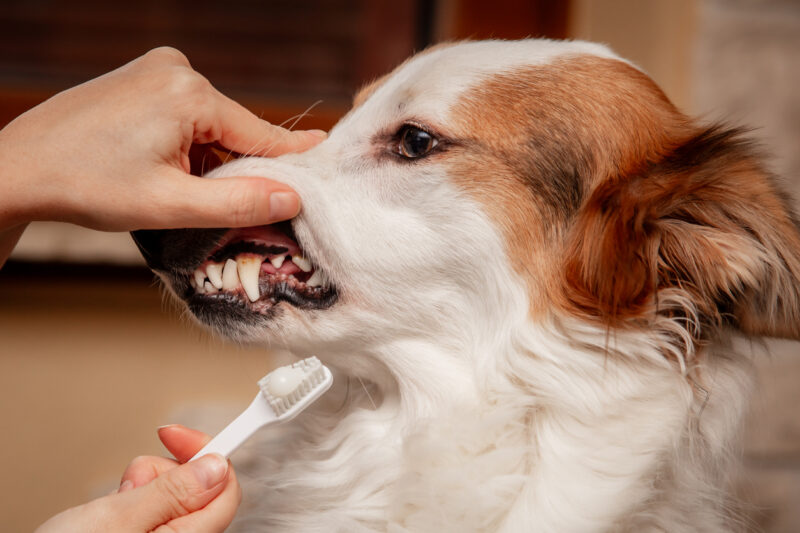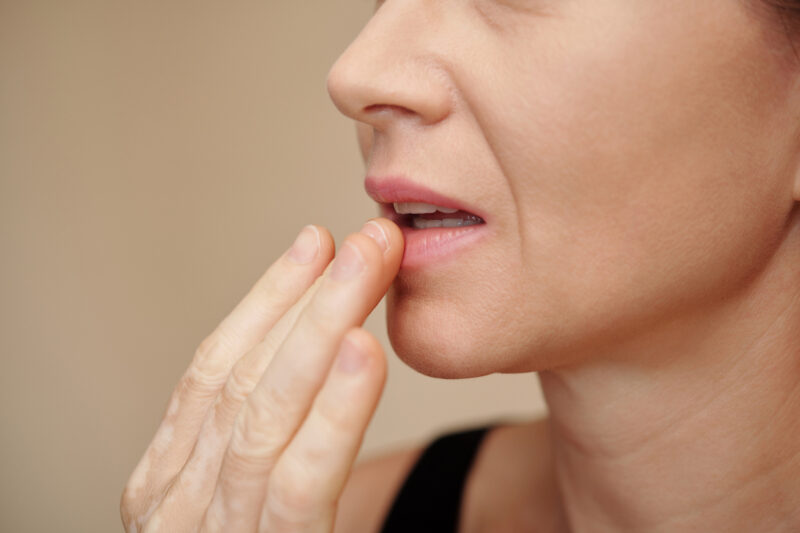The Connection Between Oral Health and Overall Health in Seniors
Importance of Oral Health for Systemic Health
Understanding why good oral health is essential for healthy aging is crucial, especially when considering the connection between oral health and overall health in seniors. As individuals age, the importance of maintaining oral hygiene cannot be overstated, given the profound impact it has on their general well-being.
Firstly, the mouth serves as a gateway to the body, and poor oral health can lead to systemic health issues. Studies have shown a strong correlation between oral health and chronic diseases such as diabetes, cardiovascular disease, and respiratory infections. For instance, periodontal disease, a common issue among the elderly, is linked to an increased risk of heart disease and stroke. This is because the inflammation and bacteria associated with gum disease can enter the bloodstream, contributing to the development of atherosclerosis (hardening of the arteries).
Oral Health and Chronic Diseases
Moreover, diabetes and oral health share a bidirectional relationship. Poor oral health can make it more difficult to control blood sugar levels, exacerbating diabetes. Conversely, individuals with diabetes are more susceptible to infections, including gum disease, due to compromised immune responses. Thus, maintaining good oral health is essential for managing diabetes effectively.
Impact on Nutrition, Digestion, and Mental Health
Another critical aspect is the impact of oral health on nutrition and digestion. Seniors with dental issues such as tooth loss or decay may find it challenging to chew and digest food properly. This can lead to poor nutrition and associated health problems, including weakened immune systems and decreased physical health. Ensuring that seniors have healthy teeth and gums allows them to enjoy a balanced diet, which is vital for maintaining overall health and vitality.
In addition to physical health, oral health significantly affects mental health and quality of life. Seniors who suffer from oral health problems often experience pain, discomfort, and embarrassment, leading to social withdrawal and depression. Good oral health promotes confidence and social interaction, essential components of a healthy and fulfilling life.
In conclusion, understanding why good oral health is essential for healthy aging highlights the need for comprehensive dental care for seniors. By prioritizing oral hygiene, regular dental check-ups, and appropriate treatments, we can significantly enhance the overall health and quality of life for aging individuals. Ensuring good oral health is not just about preserving teeth but also about protecting and improving the broader aspects of health and well-being as we age.

How Poor Oral Health Can Accelerate Aging
Impact on Chronic Diseases
Understanding why good oral health is essential for healthy aging becomes even clearer when examining how poor oral health can accelerate the aging process. Neglecting oral hygiene not only affects the mouth but can also lead to a cascade of health issues that exacerbate the effects of aging.
One of the primary ways poor oral health accelerates aging is through the development of chronic diseases. Periodontal disease, or gum disease, is a prevalent issue among older adults. This condition involves inflammation and infection of the gums, which can destroy the bone that supports the teeth. The bacteria from gum disease can enter the bloodstream, contributing to systemic inflammation and increasing the risk of heart disease, stroke, and diabetes. Chronic inflammation is a known factor in the aging process, accelerating cellular damage and leading to various age-related conditions.
Nutritional Impact and Cognitive Decline
Furthermore, poor oral health can significantly impact nutritional intake, which is crucial for maintaining health as we age. Dental problems such as tooth decay, gum disease, and tooth loss can make chewing difficult and painful, leading to inadequate nutrition. Seniors who cannot eat a balanced diet due to dental issues often experience deficiencies in essential nutrients, which can lead to weakened immunity, slower healing, and overall decline in physical health. Malnutrition can accelerate muscle loss and decrease mobility, common issues in aging populations.
Additionally, poor oral health is linked to cognitive decline. Emerging research suggests that oral bacteria and the inflammation associated with gum disease might be connected to Alzheimer’s disease and other forms of dementia. The theory is that these bacteria might travel to the brain, triggering inflammatory responses that contribute to cognitive impairment. This highlights another critical reason why good oral health is essential for healthy aging, as it can help protect brain function and delay the onset of neurodegenerative diseases.
Mental Health and Social Well-Being
Mental health and social well-being are also adversely affected by poor oral health. Seniors who suffer from dental issues often experience pain, discomfort, and embarrassment, which can lead to social isolation and depression. Maintaining good oral health promotes confidence and encourages social interaction, both of which are vital for mental health and overall quality of life as we age.
In conclusion, poor oral health can significantly accelerate the aging process through its impact on chronic diseases, nutrition, cognitive health, and mental well-being. Understanding why good oral health is essential for healthy aging underscores the importance of regular dental care and proper oral hygiene practices. By prioritizing oral health, we can help mitigate the adverse effects of aging and enhance the quality of life for seniors.
Preventive Measures for Maintaining Oral Health as You Age
Understanding why good oral health is essential for healthy aging highlights the importance of adopting preventive measures to maintain oral health as we age. Proactive dental care can significantly improve the quality of life for seniors, reducing the risk of oral and systemic diseases.
Regular Dental Check-ups and Proper Oral Hygiene
Firstly, regular dental check-ups are crucial. Visiting the dentist at least twice a year allows for early detection and treatment of potential issues such as cavities, gum disease, and oral cancer. Early intervention can prevent minor problems from becoming severe, thereby preserving oral health and preventing related health complications. Dentists can also provide professional cleanings that remove plaque and tartar build-up, which are not easily removed by regular brushing and flossing.
Proper oral hygiene practices form the foundation of good oral health. Brushing twice a day with fluoride toothpaste and flossing daily are essential habits. Fluoride strengthens the enamel, making it more resistant to decay, while flossing removes food particles and plaque from between the teeth and under the gumline where a toothbrush cannot reach. Using an antimicrobial mouthwash can also help reduce plaque and prevent gum disease.
The Role of Diet and Lifestyle Choices
Diet plays a significant role in maintaining oral health. Consuming a balanced diet rich in vitamins and minerals, particularly calcium and vitamin D, is vital for strong teeth and bones. Limiting the intake of sugary and acidic foods and beverages can prevent tooth decay and erosion. Staying hydrated is also important, as it helps maintain saliva production, which naturally cleanses the mouth and protects against decay.
Lifestyle choices such as avoiding tobacco and limiting alcohol consumption are essential for oral health. Tobacco use is a leading cause of gum disease and oral cancer, while excessive alcohol consumption can lead to dry mouth and increase the risk of oral infections. Seniors should also be aware of the side effects of medications, as many can cause dry mouth, which increases the risk of tooth decay and gum disease. Using sugar-free gum or artificial saliva substitutes can help alleviate dry mouth symptoms.

Additional Preventive Measures
Another preventive measure is the use of dental sealants and fluoride treatments. Sealants are thin, protective coatings applied to the chewing surfaces of the back teeth, where decay often starts. Fluoride treatments can provide additional protection against decay, especially for those at higher risk.
In conclusion, understanding why good oral health is essential for healthy aging underscores the importance of preventive measures. Regular dental check-ups, proper oral hygiene, a balanced diet, healthy lifestyle choices, and the use of protective treatments are all vital strategies for maintaining oral health as we age. By prioritizing these preventive measures, seniors can enjoy better oral health, which in turn supports their overall health and well-being.
Common Oral Health Issues Faced by Older Adults
Understanding why good oral health is essential for healthy aging becomes even more critical when we consider the common oral health issues faced by older adults. As people age, they become more susceptible to a variety of dental problems that can significantly impact their overall health and quality of life.
Periodontal Disease and Tooth Decay
One of the most prevalent oral health issues among seniors is periodontal disease, also known as gum disease. This condition ranges from simple gum inflammation (gingivitis) to severe disease that results in major damage to the soft tissue and bone supporting the teeth. Periodontal disease is often caused by plaque buildup and is more common in older adults due to age-related changes in the immune system, which can make it harder for the body to fight off infections. If left untreated, periodontal disease can lead to tooth loss and has been linked to other systemic conditions such as heart disease and diabetes.
Tooth decay is another common problem in the aging population. Older adults may experience an increase in cavities due to a combination of factors, including dry mouth (xerostomia), which is often a side effect of medications. Saliva plays a crucial role in neutralizing acids produced by bacteria in the mouth, so reduced saliva flow can lead to an increased risk of decay. Additionally, receding gums, which are more common with age, can expose the roots of the teeth to decay.
Oral Cancer and Tooth Loss
Oral cancer is a serious concern for older adults. The risk of developing oral cancer increases with age, with the majority of cases occurring in individuals over the age of 60. Regular dental check-ups are vital for early detection of oral cancer, as early-stage oral cancers are often painless and can go unnoticed without professional examination. Dentists can identify abnormal tissues or lesions in the mouth and recommend appropriate action.
Tooth loss, while less common than in the past due to improvements in dental care, still affects a significant number of older adults. Tooth loss can result from advanced gum disease, severe tooth decay, or injury. It can lead to difficulties in chewing and speaking, negatively impacting nutrition and social interaction. Replacing lost teeth with dentures, bridges, or implants can help restore function and improve quality of life.
Challenges with Dry Mouth
Lastly, older adults often face challenges with dry mouth, a condition that not only increases the risk of decay but also affects the ability to taste and swallow food. Dry mouth can be managed with lifestyle changes, hydration, and products designed to stimulate saliva production or replace moisture.
In conclusion, understanding why good oral health is essential for healthy aging highlights the importance of addressing common oral health issues faced by older adults. Regular dental check-ups, proper oral hygiene, and proactive management of conditions like dry mouth and gum disease are crucial in maintaining oral health and, consequently, overall health and well-being in the senior years.

The Role of Diet and Nutrition in Oral Health for the Elderly
Understanding why good oral health is essential for healthy aging is incomplete without considering the crucial role that diet and nutrition play in maintaining oral health for the elderly. As we age, our nutritional needs change, and ensuring a balanced diet is key to preserving not only our general health but also the health of our teeth and gums.
Essential Nutrients for Oral Health
Firstly, a diet rich in essential nutrients supports the health of teeth and gums. Calcium and vitamin D are particularly important for older adults as they help maintain bone density and strength, which is vital for the jawbone that supports the teeth. Dairy products, leafy green vegetables, and fortified foods are excellent sources of these nutrients. For those who are lactose intolerant or prefer plant-based diets, alternatives like fortified almond milk and tofu can provide these essential nutrients.
Vitamin C is another crucial nutrient that promotes gum health by aiding collagen production and helping repair connective tissue. A deficiency in vitamin C can lead to weakened gums and increase the risk of periodontal disease. Citrus fruits, strawberries, bell peppers, and broccoli are rich in vitamin C and should be included in the diet to support gum health.

Protein and Omega-3 Fatty AcidsProtein is vital for tissue repair and immune function, which helps protect against oral infections. Lean meats, fish, beans, and legumes are excellent sources of protein that should be part of a balanced diet for the elderly. Omega-3 fatty acids, found in fatty fish like salmon and mackerel, also have anti-inflammatory properties that can help reduce the risk of gum disease.
Limiting Sugary and Acidic Foods
On the other hand, limiting the intake of sugary and acidic foods and beverages is crucial for preventing tooth decay and erosion. Sugar promotes the growth of harmful bacteria in the mouth that produce acids, which erode tooth enamel and lead to cavities. Acidic foods and drinks, such as soda and citrus juices, can also wear down enamel. Drinking water instead of sugary drinks, eating fresh fruits instead of sugary snacks, and rinsing the mouth with water after consuming acidic foods can help protect teeth from decay and erosion.
Importance of Hydration
Hydration plays a significant role in oral health as well. Many older adults experience dry mouth, which can increase the risk of tooth decay and gum disease due to the lack of saliva. Saliva helps neutralize acids, wash away food particles, and prevent bacterial growth. Staying hydrated by drinking plenty of water and avoiding alcohol and caffeine, which can exacerbate dry mouth, is essential.
Conclusion
In conclusion, understanding why good oral health is essential for healthy aging emphasizes the importance of a balanced diet and proper nutrition. By ensuring adequate intake of essential nutrients, limiting harmful foods, and staying hydrated, older adults can maintain their oral health and, consequently, their overall well-being. A healthy diet not only supports strong teeth and gums but also enhances the quality of life as we age.
Summery
Understanding why good oral health is essential for healthy aging highlights the significant connection between oral health and overall well-being in seniors. Poor oral health can accelerate aging by contributing to chronic diseases, nutritional deficiencies, and cognitive decline. Preventive measures such as regular dental check-ups, proper oral hygiene, and healthy lifestyle choices are crucial. Common oral health issues among older adults include gum disease, tooth decay, oral cancer, tooth loss, and dry mouth. Diet and nutrition play a vital role in maintaining oral health; essential nutrients like calcium, vitamin D, and vitamin C support teeth and gums, while limiting sugary and acidic foods helps prevent decay. Hydration is also key in managing dry mouth. Prioritizing oral health through these measures ensures a better quality of life and overall health for aging individuals.
Enhancing Oral Health and Bone Health with Bone Strength Complex
The Unique Benefits of Satsuma Mandarin Orange Extract
Understanding why good oral health is essential for healthy aging goes beyond maintaining healthy teeth and gums; it involves supporting overall systemic health, including strong bones. One of the standout features of the Bone Strength Complex from Juveriente is its inclusion of β-Cryptoxanthin extracted from Satsuma Mandarin Orange, a powerful ingredient that provides unique benefits for both oral and bone health.
β-Cryptoxanthin is a naturally occurring carotenoid with potent antioxidant properties. Found abundantly in Satsuma Mandarin Oranges, this compound plays a crucial role in promoting bone health by enhancing the body’s ability to maintain bone density. As we age, maintaining bone strength becomes increasingly important, not only for preventing fractures and osteoporosis but also for ensuring the stability and health of the jawbone, which supports our teeth.
The antioxidant properties of β-Cryptoxanthin help reduce inflammation and oxidative stress, both of which are linked to bone degradation and periodontal disease. By incorporating β-Cryptoxanthin into your daily routine through the Bone Strength Complex, you can help protect your bones and gums from these damaging processes, thereby supporting overall oral health.
Comprehensive Nutritional Support for Healthy Aging
In addition to β-Cryptoxanthin, the Bone Strength Complex from Juveriente includes essential nutrients such as Calcium, Vitamin D, Vitamin K2, and Magnesium, all of which are vital for maintaining strong bones and healthy teeth. Calcium and Vitamin D work together to ensure that calcium is effectively absorbed and utilized by the body, strengthening bones and teeth. Vitamin K2 directs calcium to where it is needed most—in the bones and teeth—while preventing its deposition in the arteries. Magnesium aids in the conversion of Vitamin D to its active form, further enhancing calcium absorption and utilization.
By combining these nutrients with the powerful effects of β-Cryptoxanthin, the Bone Strength Complex offers a comprehensive approach to supporting bone health and, consequently, oral health. This is particularly important for seniors, as the interconnectedness of bone and oral health becomes more pronounced with age.
Conclusion
Incorporating the Bone Strength Complex into your daily regimen is an effective way to support both oral and bone health as you age. The unique inclusion of β-Cryptoxanthin from Satsuma Mandarin Orange provides a potent antioxidant boost that helps protect against inflammation and oxidative stress, both of which can accelerate aging and degrade bone and gum health. Understanding why good oral health is essential for healthy aging underscores the importance of products like the Bone Strength Complex, which offer targeted support for maintaining a healthy, vibrant life. For more information about the Bone Strength Complex, visit Juveriente.





